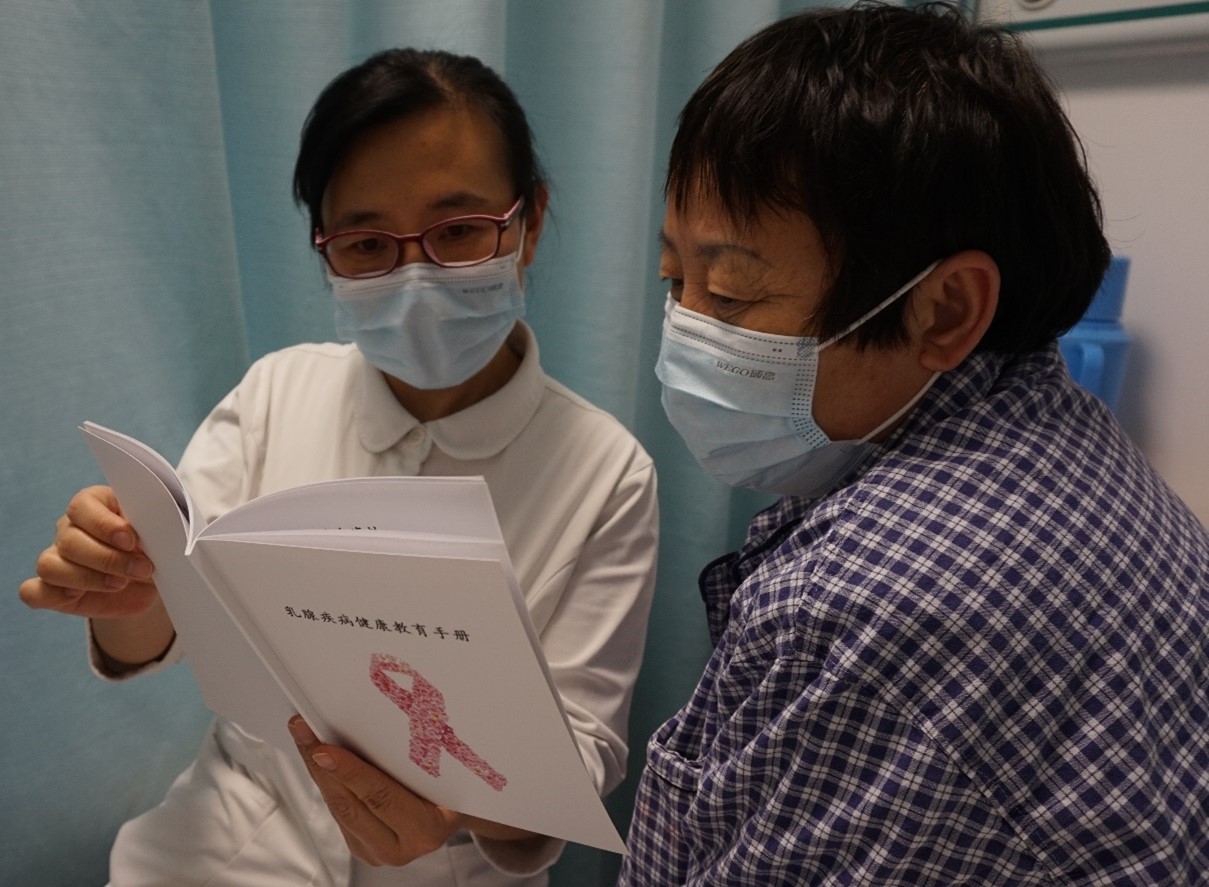Guiding breast cancer patients through care management, China
 World Cancer Day was celebrated on 4 February. In this, our first IND case study for 2021, we bring you a story of a nurse-led breast cancer case manager clinic in China.
World Cancer Day was celebrated on 4 February. In this, our first IND case study for 2021, we bring you a story of a nurse-led breast cancer case manager clinic in China.
Breast cancer has become the most common disease among women worldwide. With the increasing incidence and survival rate after surgery, breast cancer has been regarded as a kind of chronic disease that patients have to receive long time adjuvant therapy as well as face the issues about affected limb dysfunction, lymphedema, psychological disorders. In order to better provide continuous nursing care for discharged breast cancer patients, the continuing nursing clinic guided by breast cancer case manager was established at Beijing University First Hospital in July 2018.
The breast cancer case manager is an oncology nurse specialist with extensive clinical experience and certified as a lymphedema therapist. The intervention of the case manager is critical for patients after breast cancer surgery, as they can provide patients with timely and correct health education and guidance, encourage them to continue rehabilitation, help them rebuild self-confidence and return to society. The establishment of the clinic provides a communication channel and platform, allowing the case manager to work closely with patients and their families, discuss the existing problems and develop individualized rehabilitation plans for them. In addition, the case manager clinic works closely with the breast surgeon clinic, which can provide timely solutions to the treatment-related problems of breast cancer patients (such as endocrine therapy).
The case manager clinic’s role is to solve problems related to limb dysfunction; provide Complex Decongestive Therapy and health education for lymphedema; provide psychological support to help patients adapt to post-operative life and return to work and society as soon as possible; and provide patients with information about adjuvant therapy, improve their treatment compliance, and ensure the treatment effect.
Patients can make an appointment to the clinic through outpatient registration, network registration or telephone registration. Referrals can also be made by the breast surgeons. Face-to face consultation can be conducted in the clinic, and the case manager also provides Wechat online consultation during working hours.
The clinic provides evaluation and intervention of limb dysfunction. The range of motion of the shoulder joint is measured to determine the degree of dysfunction of the affected limb, and an active or passive training plan will be made according to the postoperative time of the patient. If necessary, the patient can be referred to the rehabilitation department for professional rehabilitation help.
The clinic also provides evaluation and intervention of lymphedema. The sequential circumferential limb measurements are carried out to assess the presence and severity of lymphedema. Patients without lymphedema will be provided health education related to lymphedema prevention. Patients with lymphedema will be provided with health education, as well as complex decongestive therapy requires payment.
Psychological support is provided through face-to-face consultation and psychological assessment, to identify the primary causes of the psychological issue. Information support related to adjuvant therapy is also provided, such as health education information about adjuvant chemotherapy, radiotherapy, and endocrine therapy to ensure treatment compliance.
From July 2018 to October 2020, 517 patients were received, and 255 interventions were carried out in total, including 44 interventions for limb dysfunction and 137 interventions for lymphedema. The satisfaction rate of the clinic was 98% according to the nursing department's satisfaction survey.
The key to the success of the clinic is the central role of the case manager who is also an oncology nursing specialist and a lymphedema therapist with extensive clinical experience. She is involved in the whole treatment process of the patient from the beginning of the hospitalization, and therefore has a better understanding of the patient's condition and establishes a trust relationship with the patient. The clinic, led by the case manager, can provide continuing nursing service for breast cancer patients with fewer resources, help them solve the problems they may encounter after surgery and establish a positive attitude towards life, ultimately achieving the goal of improving the quality of life and realizing the whole-course of breast cancer management.
source: https://www.icn.ch/news/guiding-breast-cancer-patients-through-care-management-china









